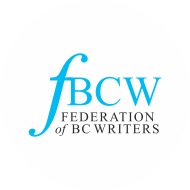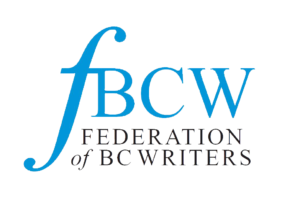Menu
Log in

2021-2022 All Rights Reserved Federation of BC Writers
| Email us at hello@bcwriters.ca | PO BOX 3503 Courtenay, BC, V9N 6Z8 Registered Charity Number: 127661718 |
<441745495538984><441745495538984>
Powered by Wild Apricot Membership Software

